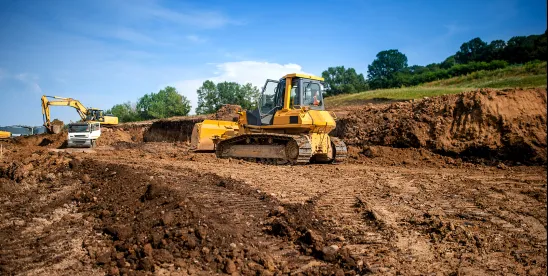We recently blogged about New Jersey’s bid protest requirements for procurements solicited under the New Jersey Division of Purchase and Property (DPP) here. As we noted, public procurements by local governmental authorities fall outside the jurisdiction of the DPP. A recent intermediate appellate court opinion from January 10, 2025, Anselmi & Decicco, Inc. v. J. Fletcher Creamer & Son, Inc., provides some additional guidance on how local bid protests are administered and reviewed.
In Anselmi, the Passaic Valley Water Commission issued a solicitation for bids on a project to construct prestressed concrete tanks at the Levine Reservoir in Paterson, New Jersey. The solicitation included a requirement that all bidders and their subcontractors be registered in accordance with the requirements of the Public Works Contractor Registration Act (PWCR Act). The solicitation also included a requirement that an archaeologist be listed to monitor all construction activities on the site, a registered historic place.
An unsuccessful bidder on the project challenged the award to J. Fletcher Creamer alleging that the archeologist included in Creamer’s bid was not properly registered under the PWCR Act. The commission heard and rejected the protest finding that no archeologist or archeology practice is required to register under the PWCR Act.
The commission’s decision was then challenged in New Jersey Superior Court. The Superior Court upheld the commission’s decision finding that:
Creamer, as the lowest responsive bidder, was correctly awarded the Project. Further, the bid specifications, as well as state law, do not require that Creamer’s archaeologist be registered under the [PWCR Act] for this Project. Further, even if state law did require it, this defect would not be fatal and therefore would not automatically disqualify Creamer’s bid. Because Creamer’s bid is not disqualified, the [Commission] correctly awarded the Project to Creamer as the lowest responsive bidder.
Undeterred, the unsuccessful bidder then appealed the trial court’s decision to the Appellate Division of the New Jersey Superior Court.
On appeal, the unsuccessful bidder argued, in part, that the trial court erred in concluding that Creamer’s failure to identify an archaeologist registered under the PWCR Act was not a statutory, material defect. The appellate court described its standard of review regarding disputes on publicly bid contracts as follows:
When reviewing disputes concerning publicly-bid contracts, ‘the function of [the trial c]ourt is to preserve the integrity of the competitive bidding process and to prevent the misapplication of public funds. We use a deferential standard of review for governmental decisions in bidding cases. The standard of review on the matter of whether a bid on a local public contract conforms to specifications…is whether the decision was arbitrary, unreasonable[,] or capricious. If a public entity’s decision is grounded rationally in the record and does not violate the applicable law, it should be upheld.’
In contrast, we review issues of statutory interpretation de novo. Accordingly, when reviewing a local entity’s or trial court’s interpretation of a statute, we exercise plenary review. (internal citations omitted)
The appellate court affirmed the trial court’s and commission’s decisions rejecting the bid protest.
The appellate court found that the archaeologist on the project was not required to be registered under the PWCR Act because it was not being hired to perform “public work” as defined in New Jersey law:
Read in full context, the language of both the PWCR Act and the PW [Public Works] Act requires subcontractors to be registered when those subcontractors will be performing public work as defined by the PW Act and they are required to pay ‘prevailing wage[s]’ to their workers under State law. The archeologist on the Project will not be performing public work as defined by the PW Act. The [contract] makes clear that the archeologist will not be engaging in or performing any construction, reconstruction, demolition, alteration, custom fabrication, duct cleaning, repair work, or maintenance work. N.J.S.A. 34:11-56.26(5). Instead, the archeologist will be monitoring ‘all excavation activities’ and preparing ‘monitoring report[s].’
… In short, if the subcontractor is not performing public work as defined in the PW Act, the subcontractor does not have to be registered under the PWCR Act.
The Anselmi case illustrates how state-level bid protests outside of the jurisdiction of the DPP may be handled. Contractors working on state or local projects in New Jersey can expect some variation depending on the local authority issuing the procurement. As indicated in Anselmi, New Jersey courts are likely to be deferential to the governmental decision on the initial protest, so unsuccessful bidders may want to keep that in mind when evaluating whether to appeal a protest denial to a trial court or beyond.






 />i
/>i

